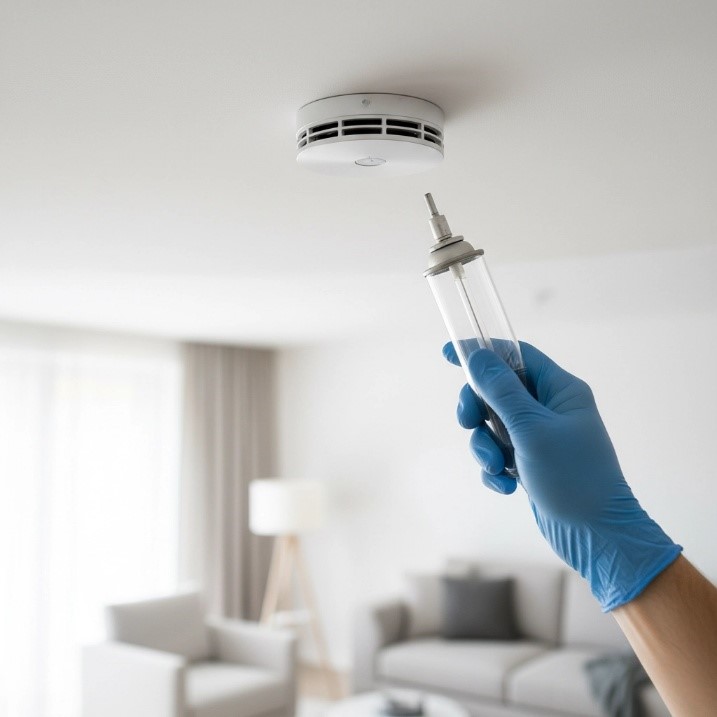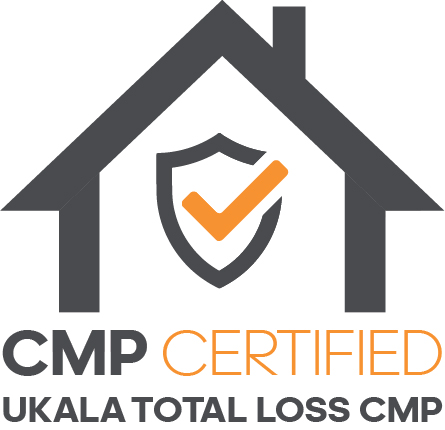Landlords Compliance
Ultimate Landlord Compliance Checklist: Legal Requirements for Lettings in England
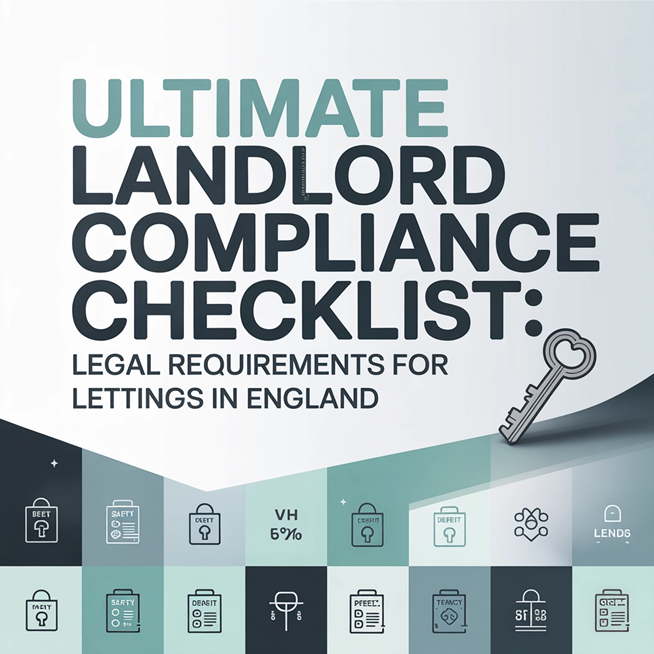
Being a landlord in England comes with significant legal responsibilities. Whether you're a seasoned property investor or an accidental landlord, staying compliant with all legal requirements is essential for protecting your investment and keeping your tenants safe. This comprehensive checklist covers every legal requirement you need to know about in 2025.
Essential Safety Certificates You Must Have
Gas Safety Certificate (Annual Requirement)
Every rental property with gas appliances must have an annual Gas Safety Certificate completed by a Gas Safe registered engineer. This isn't optional: it's the law.
What you need to do:
- Book an annual gas safety check with a Gas Safe registered engineer
- Provide tenants with a copy within 28 days of the inspection
- Give new tenants a copy before they move in
- Keep records for at least two years
- Display the engineer's Gas Safe ID card number on the certificate
Penalty for non-compliance: Unlimited fines and up to six months in prison.
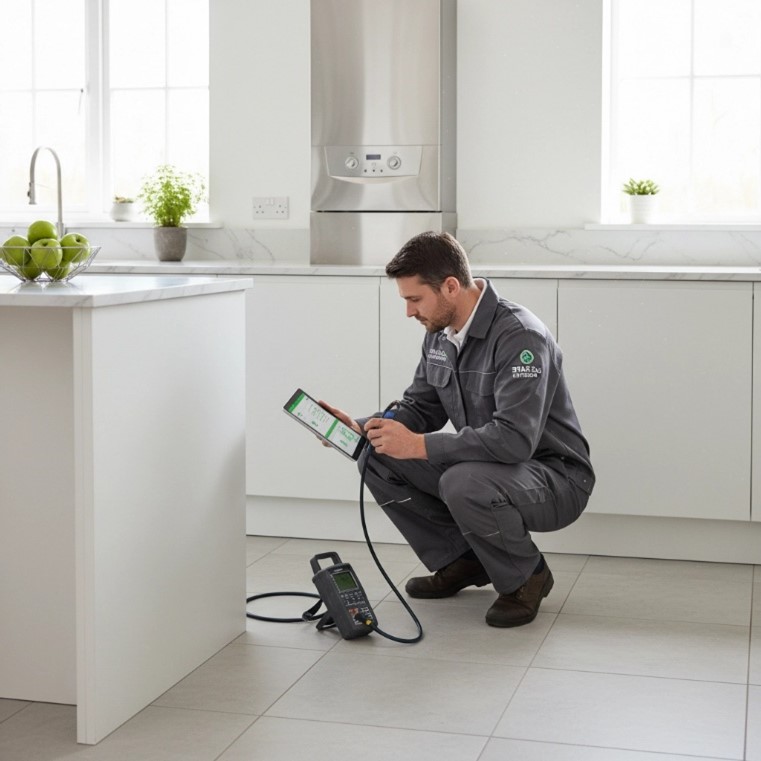
EICR (Electrical Installation Condition Report)
Since July 2020, all rental properties must have electrical installations inspected every five years by a qualified electrician.
Your checklist:
- Book inspection with a qualified electrician every five years
- Provide tenants with a copy within 28 days
- Remedy any issues rated as C1 (dangerous) or C2 (potentially dangerous) before letting
- Keep certificates as proof of compliance
Important note: Many properties inspected in 2020 will need re-inspection in 2025: book early to avoid delays.
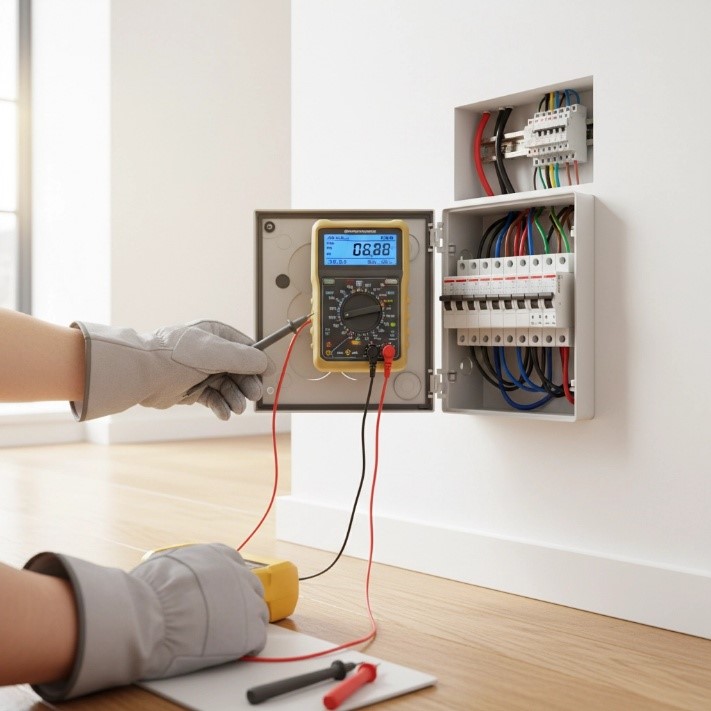
Smoke and Carbon Monoxide Alarms
You must install working smoke and carbon monoxide alarms in specific locations throughout your property.
Smoke alarm requirements:
- Install on every storey of the property
- Test alarms at the start of each new tenancy
- Use battery-powered or mains-wired alarms (battery backup recommended for mains units)
Carbon monoxide alarm requirements:
- Install in any room containing a solid fuel burning appliance
- Position according to manufacturer's instructions
- Test at the beginning of each tenancy
Energy and Environmental Requirements
Energy Performance Certificate (EPC)
Your property must have a valid EPC with a minimum rating of E band, unless specifically exempt.
Key requirements:
- Obtain EPC before marketing the property
- Valid for 10 years from date of issue
- Provide copy to tenants before they sign the tenancy
- Display rating in any advertisements
- Minimum E rating required (some exemptions apply)
Legionella Risk Assessment
You must assess and manage the risk of Legionella bacteria in your property's water systems.
Simple steps:
- Identify water systems and outlets in your property
- Assess risk factors (water temperature, stagnation, scale/debris)
- Implement control measures (regular flushing, temperature monitoring)
- Keep records of your assessment and any actions taken
- Review assessment when circumstances change
Tenant Documentation and Legal Checks
Right to Rent Checks
Before any adult moves into your property, you must verify their legal right to rent in the UK.
Checking process:
- Check original documents in person (or via video call if using digital checking)
- Verify documents haven't expired
- Take copies of acceptable documents
- Keep copies for the duration of tenancy plus one year
- Repeat checks if tenant has time-limited right to rent
Acceptable documents include:
- UK/Irish passports
- Biometric residence permits
- EU settlement scheme documents
How to Rent Guide
You must provide tenants with the latest government "How to Rent" guide before they sign the tenancy agreement.
Requirements:
- Use the latest version available on gov.uk
- Provide in English (translations available for other languages)
- Give to all tenants, including joint tenants
- Update tenants if a new version is published during tenancy
Deposit Protection
If you take a tenancy deposit, you must protect it in a government-approved scheme within 30 days.
Your options:
- Deposit Protection Service (DPS)
- MyDeposits
- Tenancy Deposit Scheme (TDS)
What you must do:
- Protect deposit within 30 days of receiving it
- Provide prescribed information to tenants
- Return deposit fairly at end of tenancy
- Use scheme's dispute resolution if disagreements arise
Licensing and Registration Requirements
HMO Licensing
If your property is a House in Multiple Occupation (HMO), additional licensing requirements apply.
When you need an HMO licence:
- Property occupied by five or more people
- Residents form more than one household
- Shared facilities (kitchen, bathroom, or toilet)
Additional HMO requirements:
- Fire safety measures (fire doors, escape routes, fire detection)
- Room size standards
- Kitchen and bathroom facilities standards
- Refuse storage arrangements
Selective Licensing
Some local authorities operate selective licensing schemes requiring landlords to obtain licences for all rental properties in designated areas.
Check if you need a licence:
- Contact your local council
- Search online for your area's licensing requirements
- Apply before letting your property if required
Fire Safety Requirements
Fire Safety Measures
Beyond basic smoke alarms, you may need additional fire safety measures depending on your property type.
General requirements:
- Ensure clear escape routes
- Install fire doors where required
- Maintain fire detection systems
- Provide fire blankets in kitchens (recommended)
- Regular testing of all fire safety equipment
For HMOs:
- Enhanced fire detection systems
- Fire doors throughout common areas
- Emergency lighting on escape routes
- Fire risk assessment
Ongoing Compliance Responsibilities
Property Maintenance Standards
You must ensure your property meets the Homes (Fitness for Human Habitation) Act 2018 standards.
Key areas to maintain:
- Structural stability and weather resistance
- Freedom from dampness and adequate ventilation
- Hot and cold water supplies
- Drainage and sanitary facilities
- Facilities for preparation and cooking of food
- Heating systems
Tenant Communication
Maintaining good communication helps prevent compliance issues escalating.
Best practices:
- Respond to maintenance requests promptly
- Keep tenants informed of any inspections or works
- Provide clear contact information for emergencies
- Document all communications
Upcoming Changes: Renters' Rights Bill 2025
The Renters' Rights Bill will introduce significant changes to landlord obligations from January 2026:
- Section 21 abolition: No-fault evictions will end
- Decent Homes Standard: All rentals must meet enhanced property standards
- Pet policies: Tenants gain right to request pets (28-day response required)
- Discrimination prevention: Cannot refuse tenants with children or on benefits
- Rent increase limits: Maximum once per year, with tenant challenge rights
And relax! While landlord compliance might seem overwhelming, breaking it down into manageable steps makes it entirely achievable. At Abacus Homes, we understand the challenges landlords face with ever-changing regulations. Our experienced team can help ensure your property meets all legal requirements, giving you peace of mind and protecting your investment.
Remember, this guide provides general information only and doesn't constitute legal advice. Always consult current government guidance and consider professional advice for your specific circumstances. Staying compliant protects both you and your tenants; it's an investment in successful, stress-free lettings.



